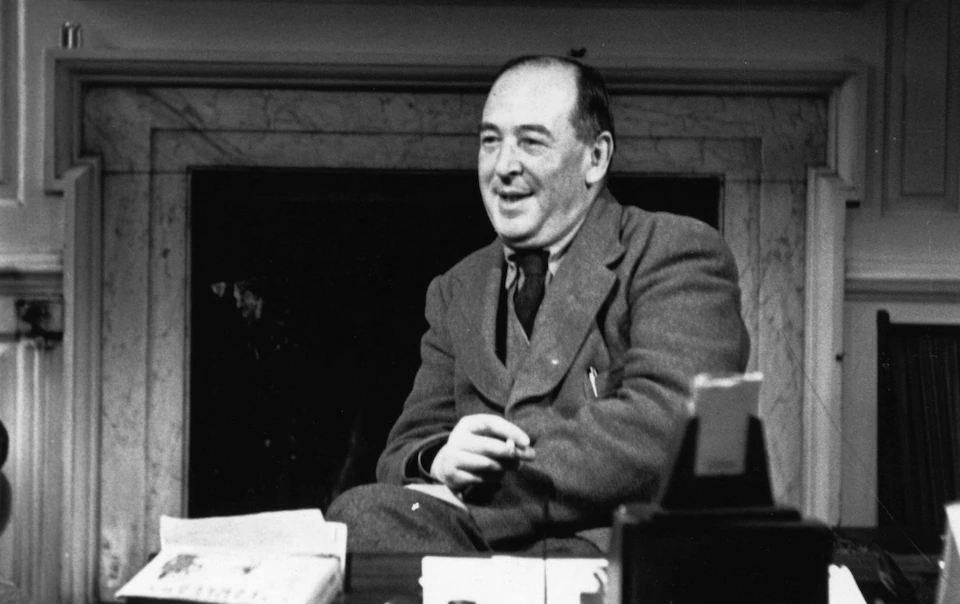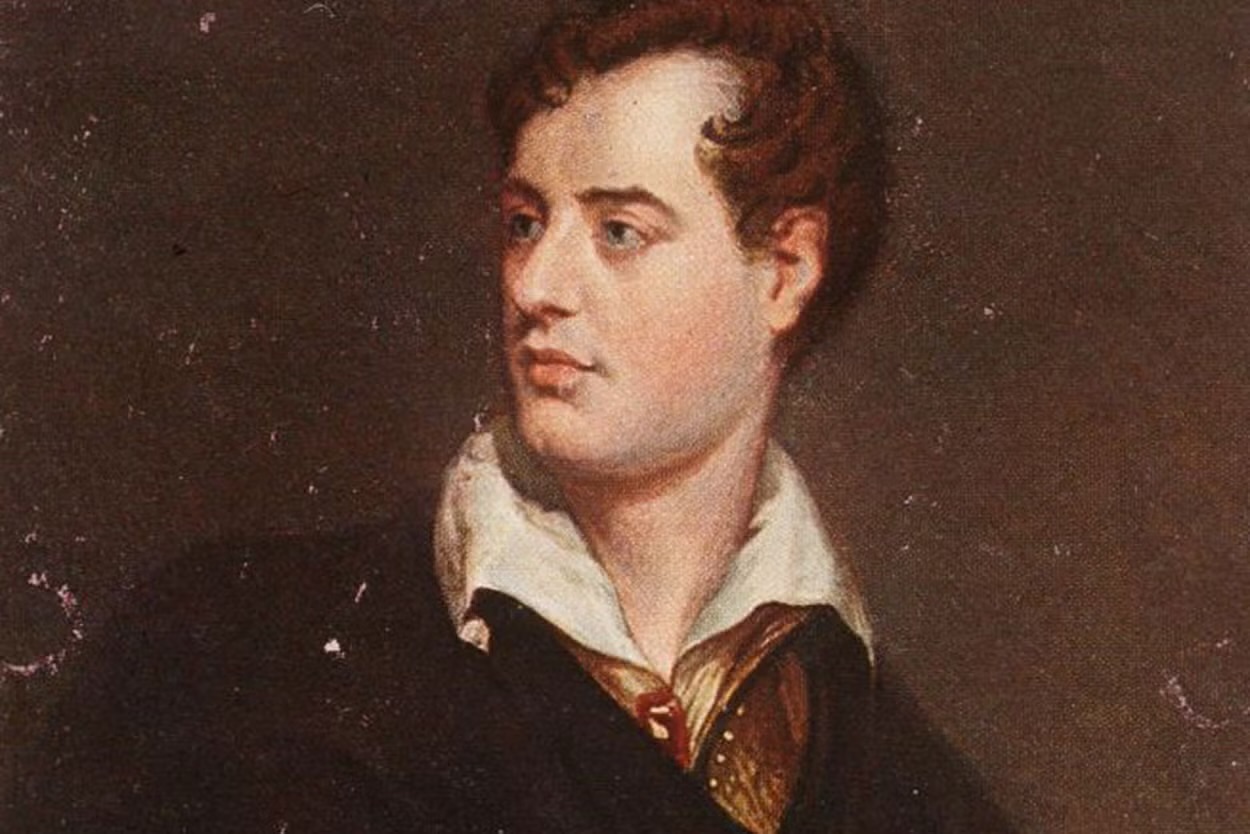Today on My Poetic Side we take a look at two new discoveries in the world of poetry – a previously unseen poem linked to CS Lewis and a letter about Lord Byron.
Whisky and Warm Blankets
 A poem written by CS Lewis, which was previously unknown, has been found. The poet and author found inspiration for this most recently discovered poem in warm blankets, whisky and Beowulf, the Anglo-Saxon epic.
A poem written by CS Lewis, which was previously unknown, has been found. The poet and author found inspiration for this most recently discovered poem in warm blankets, whisky and Beowulf, the Anglo-Saxon epic.
The poem, which was written in 1935 on some notepaper from Magdalen College is written in the alliterative style. There are significant indications of the passion that he had for Old English in the title
“Mód Þrýþe Ne Wæg”
his pen name “Nat Whilk” and even the use of the word “Þrýþ” which appears in the second line of the poem.
The poem is a thank you, written from one medievalist to another, and was written by Lewis to Dr Ida Lilian Gordon and her husband following his visit to their home in Manchester. Dr Gordon, a specialist in Medieval English and her husband who was a professor of English Language were also friends with JRR Tolkien and the poem mentions this fact. Little is made of the friendship between Lewis and the couple. However, he did pen them an Old English bridal song in 1930 as a wedding gift.
The poem has been overlooked for decades and has been hidden amongst a bundle of documents linked Tolkien and the Gordons which the University of Leeds acquired a decade ago. It was found by Dr Andoni Cossio when he was doing some research. He knew when he found it that it was not a poem that appeared in any of Tolkien’s published works making its discovery a particularly exciting one.
The poem is not the only one that Lewis singed with the pen name Nat Whilk, which is a modern version of the Old English word for “someone” and in this case translates to anonymous, which helps to authenticate its provenance.
The University of Leeds are very excited by the discovery and to be able to say that their collection contains an original display of a CS Lewis poem.
Unseen Letter Shows Brutal Takedown of Wife and Mother-in-law by Byron
 A previously unseen letter written by the poet Lord Byron gives a good indication of why the manuscript for his memoirs was burnt following his death.
A previously unseen letter written by the poet Lord Byron gives a good indication of why the manuscript for his memoirs was burnt following his death.
The poet, who was only 36 when he died, left written instructions for his memoirs to be published on his death. However, the manuscript was burnt at the offices of his publisher, who was concerned about the damage this might do to his reputation.
The letter, which was found by an archivist cataloguing the Dawson Tuner collection at Trinity College’s Wren Library, University of Cambridge describes the way in which Byron refers to both his wife and his mother-in-law in the memoir. In addition to speaking of the little attachment he had to his wife at any time he also always refers to her not by name but as “Miss Millbanke”. According to the letter, the memoir also contained cruel remarks about his father in law and a number of families in the neighbourhood.
Byron was known to be a man who liked to shock, so the revelation of the contents of the memoirs is of little shock to those in literary circles, it does however offer a fascinating insight into something that has always be speculated about.


You must register to comment. Log in or Register.